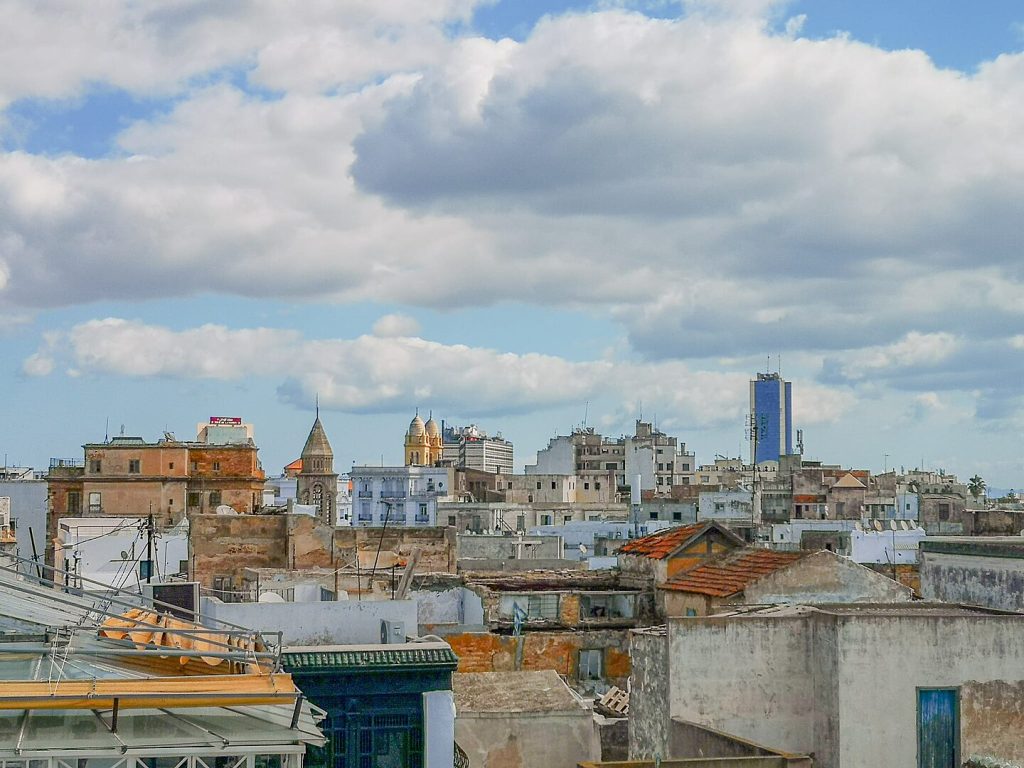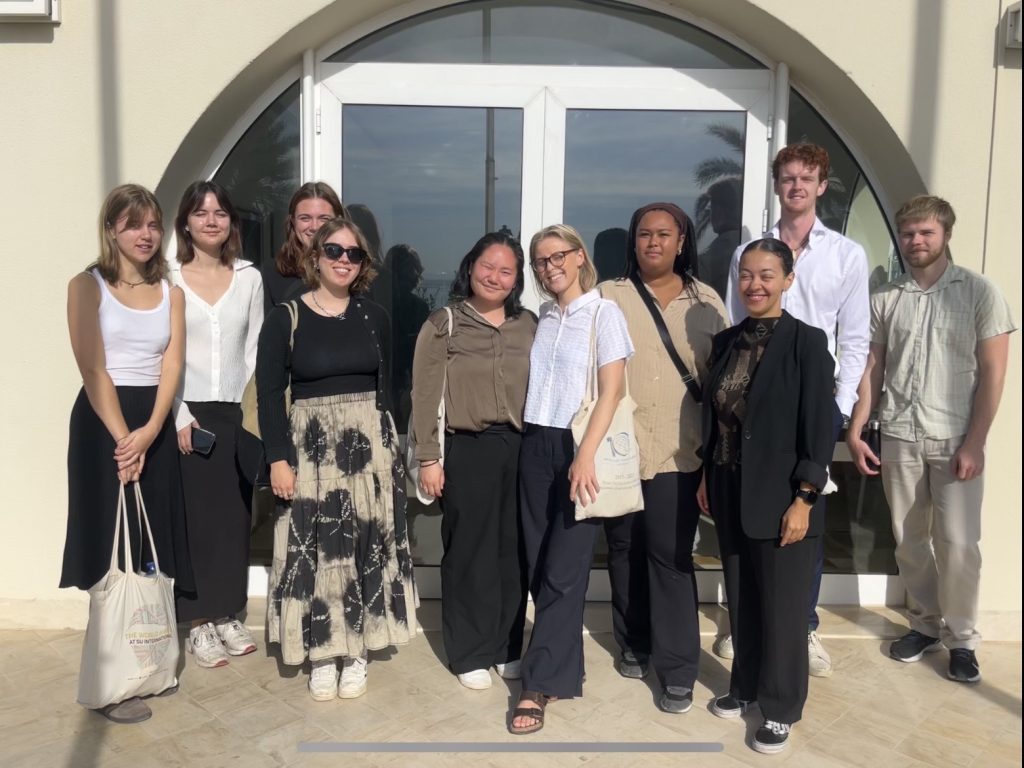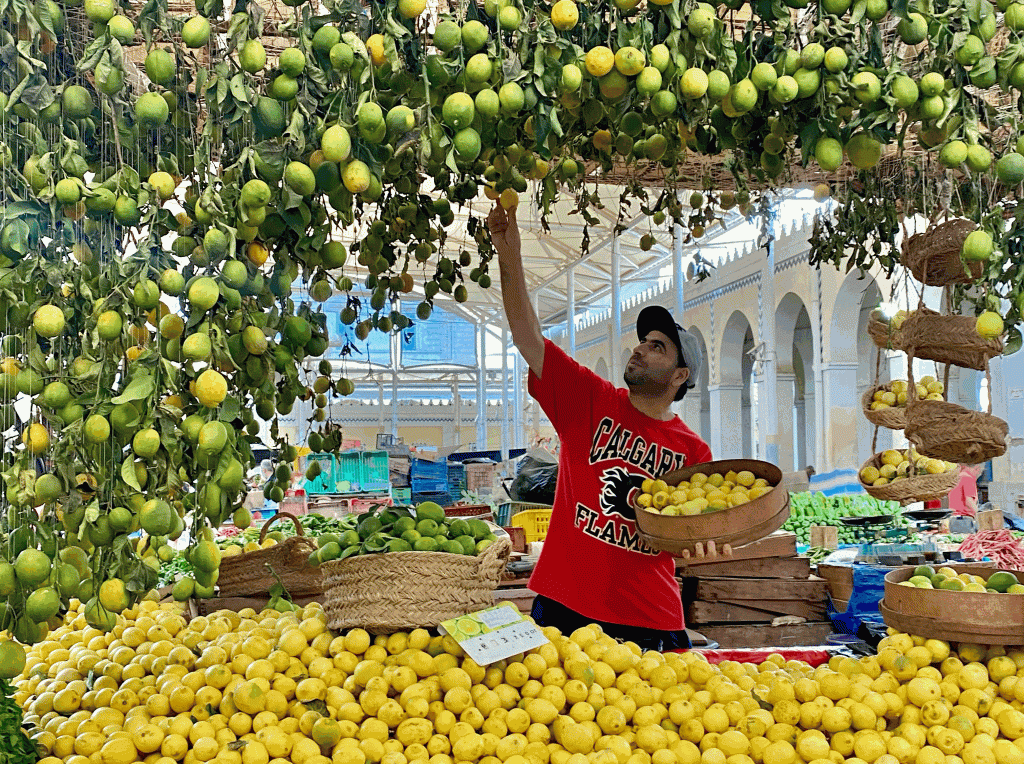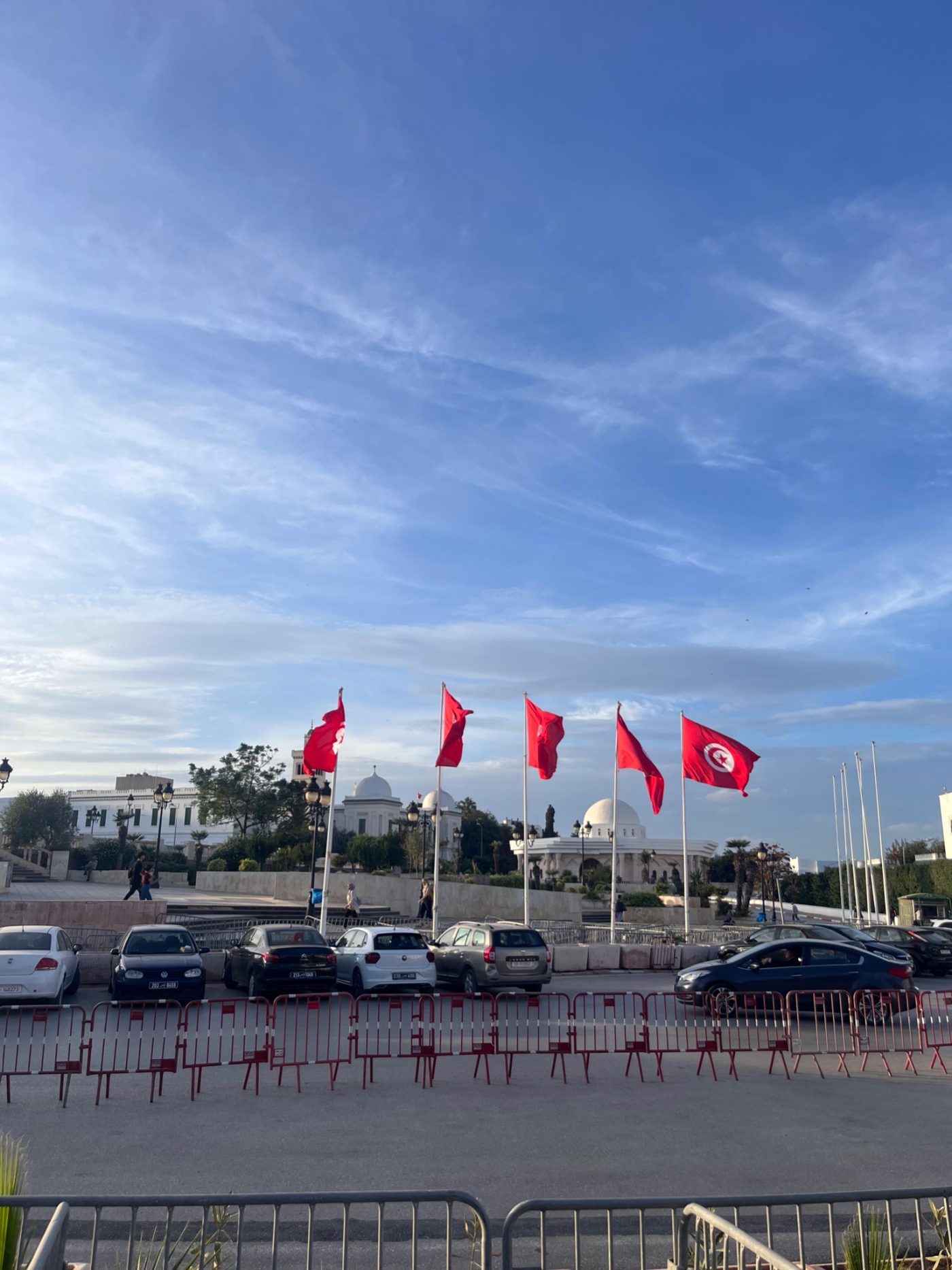On the 29th of October, the UPF travel committee went to Tunis—the capital of Tunisia—for a week. We learned about the Tunisian democratisation process and how different organisations work with questions of democracy and equality. We met intergovernmental organisations, such as the United Nations Development Programme (UNDP) and the EU delegation, and non-governmental organisations, including Avocats Sans Frontières, Mawjoudin, and the Kawakibi Democracy Transition Centre. Through these meetings we not only gained a better understanding of the current state of democracy, and human and civil rights in Tunisia but also of what the people working in the aforementioned organisations do—by extension, what we might be interested in doing in the future. This article takes you through some of the meetings we found most interesting, giving you a glimpse of what travelling with UPF Lund entails.
Power grab
Many organisations spoke of a recurring issue in Tunisia: the ongoing autocratisation process. On Wednesday morning we learnt more about this from four women working at Avocats Sans Frontières—French for Lawyers without Borders—a non-governmental organisation committed to offering legal aid and reports on current violations of human rights and the rule of law. When Kaïs Saïed was elected President in 2019, he was a political outsider. The public was showing dissatisfaction with major political parties. Saïed has since shifted the political direction of the country from democratisation to autocratisation. The workers at Advocats Sans Frontières were visibly worn down by Saïed’s continuous attempts to gain more power. Especially since the activation of Article 80 in July 2021.
By initiating a state of emergency through Article 80 as a response to COVID-19, Saïed effectively dissolved the parliament and constitutional bodies, lending him full power and allowing him to write a new constitution. Since this power grab, political opponents and journalists who are critical of Saïed’s presidency have been imprisoned. 21 cases of human rights violations against journalists have been documented, restricting them from covering political issues. Journalists are under threat and independent media is effectively being silenced. This affects the civilians, who are now far less able to find transparent information on current events related to Saïed. The Kawakibi Democracy Transition Centre further stressed that the political arrests and consequent imprisonments ensure that future elections will naturally favour Saïed, with all major opponents out of the picture. Overall, there seemed to be a consensus among organisations that Saïed is continually suppressing democratic values. Meanwhile, he is gaining popularity as a “strongman” among many Tunisian people, which could possibly be connected to an increased loss of faith in democracy. As a result, the democratic future of the country remains bleak.


LGBTQ+ rights, or the lack thereof
Political figures and journalists are not the only people struggling. LGBTQ+ rights in Tunisia are nonexistent, putting many queer and non-normative people at risk for persecution and discrimination. The queer community faces copious amounts of discrimination and immense pressure to conform to societal norms in everyday life. Laws are preventing queer people from expressing themselves, all of which relate to Article 230, a penal code from 1913 that prohibits same-sex activity. Since the Arab Spring in 2011, one LGBTQ+ rights organisation in Tunisia reported that there have been 1458 convictions of people violating Article 230, and the people who became victims of the law, were often forced to undergo anal testing as evidence of a crime. In May and June of last year, Damj reported that there have been over 60 cases where queer people have been prosecuted, detained and arrested.
With the LGBTQ+ rights movement growing, and with growing visibility, we met with two organisations that actively work with LGBTQ+ rights in Tunisia: Mawjoudin and Damj. Mawjoudin—Arabic for We Exist—was the first LGBTQ+ rights organisation we met with. They offer support such as HIV testing, counselling, hosting events and creating a safe space for members of the community. The second organisation we met with was Damj. Their organisation is located in Tunis, yet they remain the only LGBTQ+ rights organisation with branches all over Tunisia. Damj also offers support to members of the community in the form of counselling.
Out of all the organisations we met with, LGBTQ+ issues combined with the democratisation process of Tunisia were highlighted most often. Some organisations even refuse support from the current government and its institutions, since that could destroy their chances of making a real change.


Sightseeing around Tunis
Not only did we have rewarding meetings with organisations, but we also had time for sightseeing and exploring parts of Tunis. We had coffee in cosy cafes and dinner Downtown. We also explored both the Medina Market and the Municipal Market of Tunis. We visited the Bardo National Museum with its many national treasures and had afternoons at the beach. Above all, we had time to try a lot of good food. The trip ended with Tunisian wine on the rooftop, overlooking the city where we had stayed.
If you ever find your way to Tunis, we hope you feast on all the amazing food they offer, whether that be couscous, makloub or brik, and spend time walking around downtown and the Medina. While you’re in the area, we recommend you go to the Municipal Market of Tunis and look for a beautifully decorated lemon stand. You might be surprised by the charismatic photographer running it. This trip gave us both cultural knowledge and information about the current autocratisation process in Tunisia. The meetings we had with the different civil rights organisations opened our eyes to the different career choices we have in life, however, it also left us with a lot of questions regarding the future of governance in Tunisia. In the end, we left Tunisia enlightened by what the organisations active in the area do every day to help their people.


By Ella Målberg and Lina Nartey
28 November, 2023








